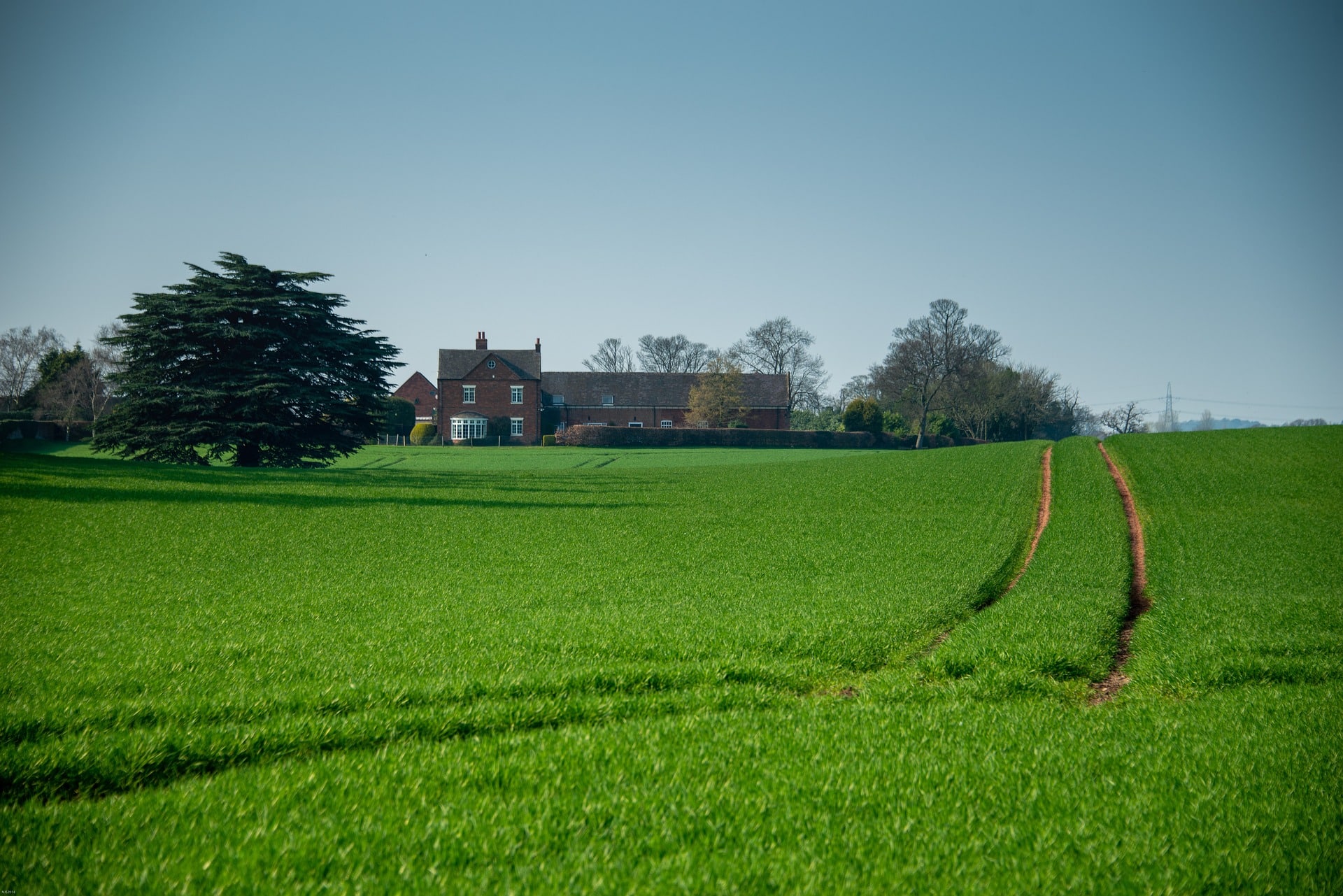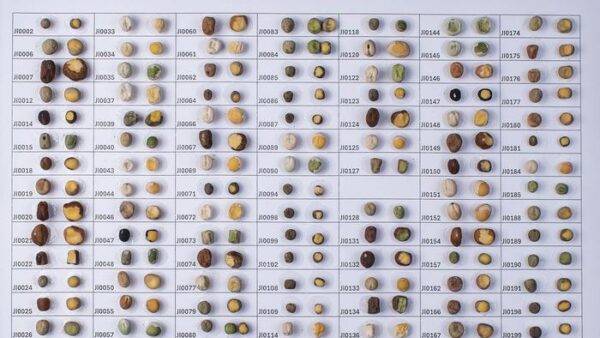Before her appointment as chief executive, Samantha (Sam) Brooke was Vice-Chair of the British Society of Plant Breeders (BSPB), having served on the BSPB Board since October 2015. In these first of two articles focusing on BSPB and the UK market Sam reflects on her first few months in charge, and the combined challenges of COVID-19, extreme weather, Brexit preparations and the prospect of a UK Government consultation on future gene editing rules. A second article for European Seed, providing a more strategic view of BSPB for the future, will follow next year.
Over the past year, extreme weather has again disrupted the UK arable farming sector, with the 2019 winter wheat area alone down by almost 20% due to the difficult planting conditions.
The impact of losing neonicotinoid seed treatments was also felt more keenly than ever, with the UK oilseed rape area falling below 500,000 ha for the first time in 15 years, and the sugar beet sector bracing itself for major yield losses due to virus yellows infestation.
In any normal year, these would be our main talking points, not only in terms of physical seed supply and demand but also how these issues highlight the importance of plant breeding innovation to develop improved crop varieties with more durable pest and disease resistance, and greater resilience to climate extremes.
But set in the context of the devastating coronavirus pandemic and the remaining lack of clarity over a Brexit deal with the EU, these catastrophic farm-level impacts seem almost inconsequential.
Put simply, the past few months have been one of the most challenging and uncertain periods in the history of BSPB and its members – and certainly a baptism of fire for me as incoming chief executive!
BSPB
BSPB’s predecessor body, the Plant Royalty Bureau, was established in 1966 to collect seed royalties on behalf of plant breeders. Today, BSPB combines royalty collection with a broader role in industry representation and the co-ordination of officially licensed variety trials.

The Society’s current membership of 72 companies and organisations is the highest on record, comprising virtually 100% of public and private sector plant breeding activity in the UK. Members range from multinational agribusinesses to independently owned SMEs and public sector research institutes.
BSPB’s head offices are based in the east of England at Ely, around 15km north of Cambridge. The Society’s operations are carried out by an executive team of 14 full-time members of staff.
This work programme is overseen by a Board of Directors elected by the membership and supported by a network of Crop Groups comprised of member company representatives with relevant technical expertise.
Royalty Collection
BSPB acts on members’ behalf to license and collect royalties on certified seed of protected varieties of cereals, pulses, potatoes and grasses in the UK. The Society also manages the UK-wide system for collecting payments for the use of farm-saved seed (FSS) of protected varieties, operating under the terms of an agreement between BSPB and the major farming unions.
In recent years, BSPB has invested in bespoke database software, additional staff resources and industry-wide communications to improve the efficiency of its certified and farm-saved seed collection systems.
It is worth noting that FSS payments now account for around 30% of total royalties collected by BSPB — a significant proportion of the income available to members for investment in future breeding programmes. Also, the Society’s focus on collection efficiency allows at least 97.5p in every £1 collected to be returned directly to members.
Trials Co-ordination
Operating under official licence from the testing authorities, BSPB took over responsibility for co-ordinating National List variety trials on a pilot basis in 2004, beginning with spring peas and oats. In subsequent years this was extended to cover all cereals, pulses and sugar beet varieties, followed by maize, oilseed rape and herbage. BSPB is now contracted by the official UK testing authorities to carry out National List trials on all crop species except potatoes.
[tweetshareinline tweet=”BSPB’s pivotal role strengthened the statutory National List and delivered cost-savings of over £1 million/yr by improving efficiency, removing duplication and reducing unnecessary red tape. ” username=”bf0bb2e954fc86abade4306f627a7a29″]
National List trials are operated on a full cost-recovery system, funded by breeders. The trials are either conducted by BSPB members or carried out under contract by testing organisations such as NIAB. The Society’s pivotal role in co-ordinating the statutory National List system has strengthened its technical relevance and compatibility with the industry-led Recommended and Descriptive Lists of varieties, while at the same time delivering cost-savings of over £1 million a year by improving efficiency, removing duplication and reducing unnecessary red tape.
Industry Representation
Members’ ability to develop successful new varieties depends on them being able to operate within an enabling, science-based regulatory environment, in which innovation is supported by effective IP protection and appropriate levels of public sector funding for relevant R&D.
BSPB works to achieve this through engagement with regulators, policymakers, research funders and other industry organisations, ensuring members’ interests are represented and communicating the importance of the plant breeding sector to the needs of society and the environment.
Where possible, BSPB seeks to amplify its voice by finding common cause with industry partners and other like-minded organisations. BSPB is a founding stakeholder of the All-Party Parliamentary Group on Science and Technology in Agriculture at Westminster and is an active member of the cross-industry Agri-Supply Coalition and Crop Innovation Network (CropIN) groupings.
COVID-19
In the first few weeks of lockdown, as panic-buying stripped the supermarket shelves of many basic foodstuffs, the devastating COVID-19 outbreak provided a stark reminder that access to food is a basic human need.
It also highlighted the potential fragilities of our food system and the critical role of British agriculture and its allied industries in safeguarding the nation’s food supply.
Together, plant breeders, seed suppliers and farmers provide the foundation of the crop production and processing chain. Our partnership feeds and sustains the population.
Working under challenging conditions, BSPB members have kept essential operations going, not only to maintain breeding programmes for the next generation of varieties, but also to safeguard supplies of basic and pre-basic seed of current varieties as the seedstock for certified seed production.
[tweetshareinline tweet=”COVID-19 showed us that plant breeders, seed suppliers and farmers provide the foundation of the crop production and processing chain. Our partnership feeds and sustains the population.” username=”bf0bb2e954fc86abade4306f627a7a29″]
As an industry we have a great deal to be proud of through the pandemic in maintaining that vital lifeline to future harvests.
And throughout these difficult times, BSPB has also maintained essential support to members, ensuring the continued operation of our royalty collection and variety testing systems, providing timely information and advice to the sector, and working with Government and our industry partners to prepare the ground for a more enabling regulatory environment for future plant breeding innovation in the UK.
Brexit
The lack of clarity over the terms of our future relationship with the EU post-Brexit, indeed whether a trade deal with the EU will be reached at all, remains a major challenge for our sector so close to the end of the transition period.
BSPB has continued to work closely with government officials and with industry partners to keep members informed of the technical advice they need to plan ahead, and until some clarity emerges from the ongoing trade talks we must continue to hope for the best but prepare for the worst.
Major areas of uncertainty remain, for example in relation to reciprocal recognition of seed marketing and phytosanitary arrangements, as well as tariffs, and given the current volume of trade in seed and transboundary movement of breeding material between the UK and EU there is a rapidly diminishing amount of time for businesses to prepare.
The Agri-Supply Coalition, of which BSPB is a founding member, recently wrote to Environment Secretary George Eustice to highlight these concerns on behalf of the UK agricultural input supply sectors, seeking greater clarity and information on the new rules and regulations which member businesses must comply with, and offering to work with Government to develop practical and workable solutions to prepare for those changes.
At the time of writing we appear no further forward in resolving these uncertainties, and I am sure our plant breeding and seed industry colleagues throughout the EU will equally be urging their respective Governments to safeguard our mutual interests in reaching a sensible, pragmatic deal which allows unfettered trade in seed and breeding material to continue post-Brexit.
Gene Editing Consultation
One fact remains clear. Uncertainty over the impact of Brexit on trade, competition and farm support, alongside the challenges of climate change and loss of crop protection products, mean that Britain’s farmers will need access to genetic innovation more than ever before.
And the prospect of leaving the EU is, at least in one area, opening up opportunities to develop a more proportionate and enabling environment for plant breeding innovation.
[tweetshareinline tweet=”The prospect of leaving the EU is opening up opportunities to develop a more proportionate and enabling environment for plant breeding innovation.” username=”bf0bb2e954fc86abade4306f627a7a29″]
Through the cross-industry group CropIN, and as a core stakeholder of the All-Party Parliamentary Group on Science and Technology in Agriculture, BSPB has been active in persuading the UK Government — through a proposed amendment to the Agriculture Bill — to consult on early action post-Brexit to set-aside the problematic ECJ ruling of July 2018 which classified all newer forms of mutagenesis, including gene editing, as GM.
Thanks to widespread support for this move from cross-party politicians, scientists, plant breeders, farmers, food processors and the international development community, the government has agreed to consult this autumn on a proposed legislative change such that gene edited organisms whose DNA changes could have occurred naturally or through traditional breeding methods should be out of the scope of existing GMO regulations.
This would re-focus future GM regulation on transgenic products incorporating foreign DNA. Published data suggests that this would at a stroke remove some 90% of current gene editing applications from the scope of GM regulations, and it would align our rules with the regulatory stance of other non-EU countries such as Australia, Brazil, Argentina, the U.S. and Japan.
Through this initiative, Britain’s plant breeding industry is on the cusp of potentially the most significant breakthrough in genetic innovation in more than 20 years. We seek to move on from the stagnation of dysfunctional, highly politicised EU regulation towards a science-based framework more closely aligned with progressive agricultural economies around the world whose scientists, plant breeders, farmers, consumers and environments are already benefiting from access to these more precise breeding tools.
These are truly game-changing technologies with the potential to help our industry respond to the urgent challenges of food and nutrition security, climate change and sustainable development.
As we chart our recovery from the devastating COVID-19 crisis, ensuring we have access to the best available technologies and can operate in a proportionate and enabling regulatory environment will be even more critical than ever.
I genuinely hope that EU leaders, through the European Commission study of the ECJ ruling initiated by Council of Ministers, will also heed the calls of scientists, plant breeders, farmers and food companies across Europe and take action to put the EU on a more pro-innovation trajectory on this vital issue.
[tweetshareinline tweet=”I genuinely hope that EU leaders will also heed the calls of scientists, plant breeders, farmers and food companies to take action to put the EU on a more pro-innovation trajectory on this vital issue.” username=”bf0bb2e954fc86abade4306f627a7a29″]
Looking Ahead
Working under extremely challenging circumstances, BSPB is doing all it can to support future plant breeding innovation and innovation in the UK.
We are very fortunate to have such a fantastic executive team at Ely. The collective knowledge, expertise and dedication of BSPB staff help ensure that our industry is not only supported by highly efficient IP and variety testing systems, but also that the Society is well-placed to adapt and innovate in response to the challenges and opportunities ahead.
In my second article for European Seed, I will set out BSPB’s strategic vision for the future – from the integration of new breeding technologies and IP reforms through to transforming the way we communicate our industry’s contribution to society’s changing demands and expectations.
Editor’s Note: Samantha (Sam) Brooke took over as chief executive of the British Society of Plant Breeders (BSPB) in July 2020. A sales and marketing professional with more than 17 years’ commercial experience within the UK and European plant breeding and seeds industry, Sam joined BSPB from Syngenta UK, where she was Head of Seed and Seed Treatment Sales for UK and Ireland, having previously held seed production and sales positions with both Monsanto and RAGT.












